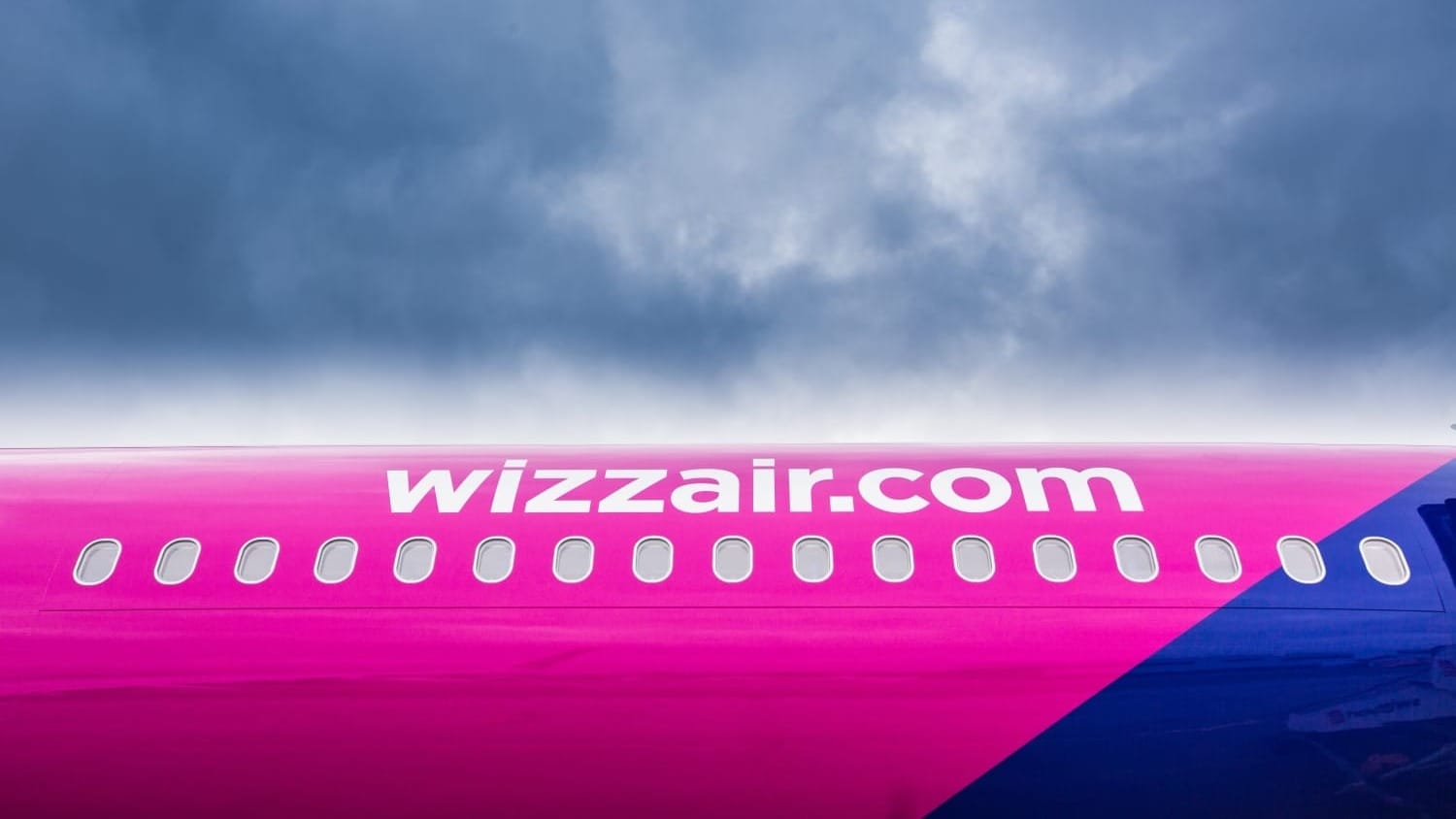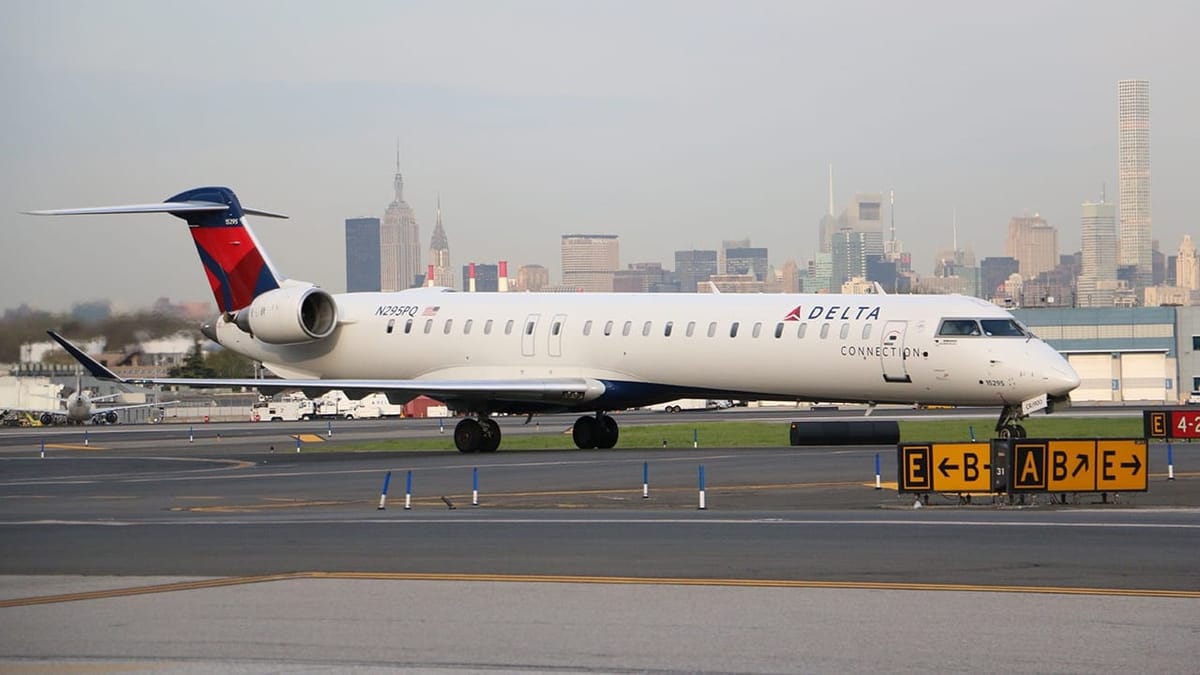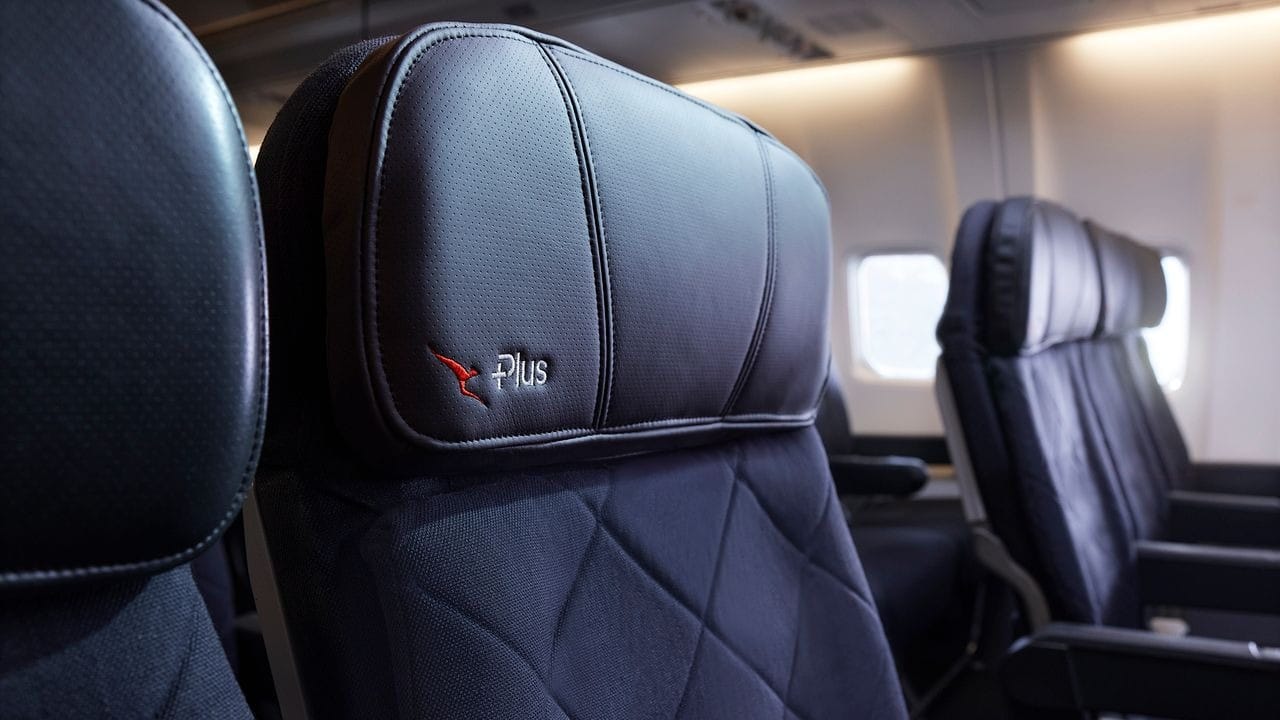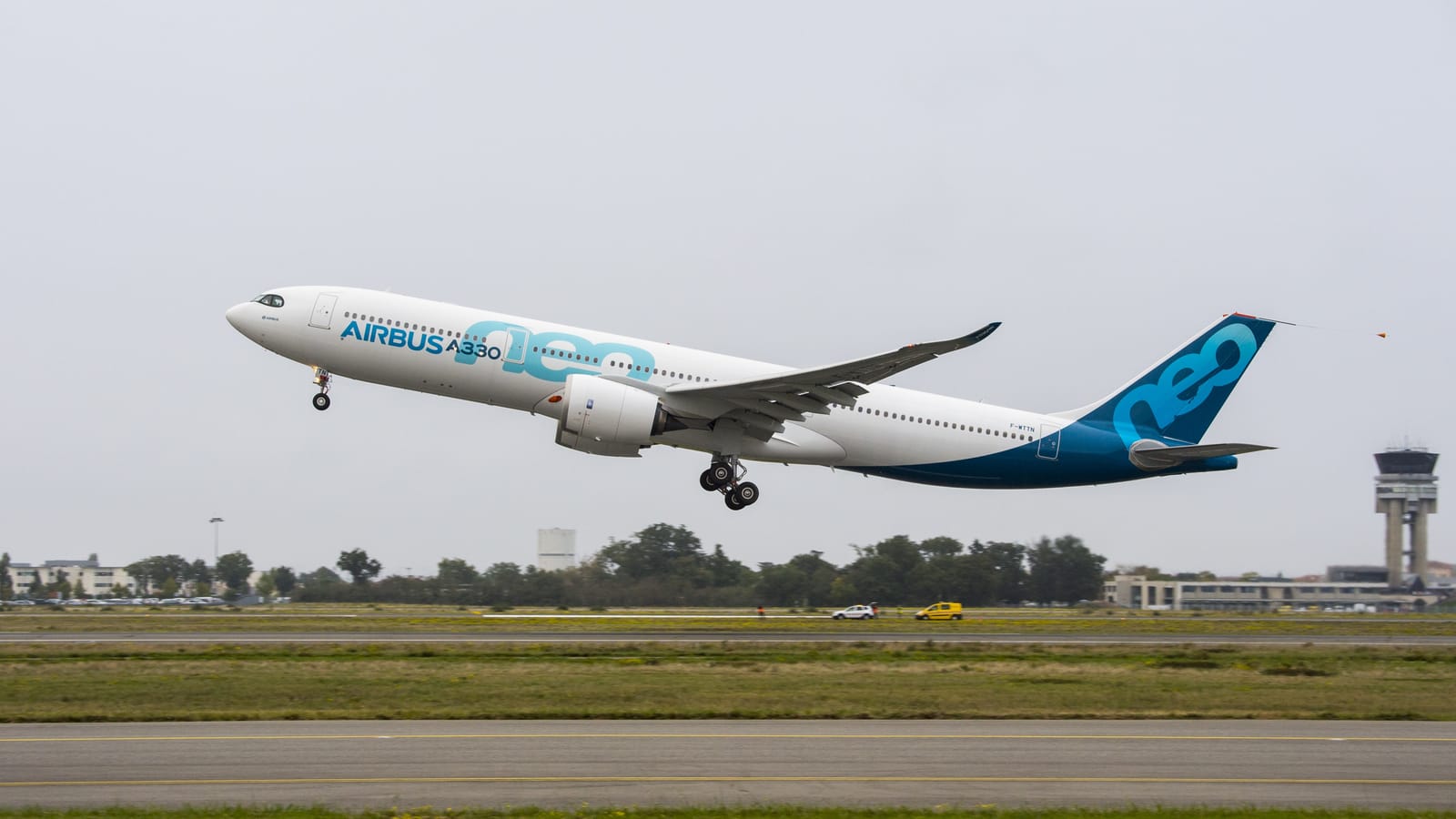Wizz Air, the European low-cost carrier focused on serving markets in Central and Eastern Europe, has begun using Lufthansa Systems’ GPS Interference Detection feature that is provided with the company’s navigation solution.
On October 1, 2025, Lufthansa Systems announced that Wizz Air, which has been utilizing the company’s Lido mPilot, an integrated charting application for iOS, has begun integrating the GPS Interference Detection feature.
According to Lufthansa Systems, GPS jamming and spoofing events have been rising globally, which poses a safety risk due to “degrading navigational accuracy, increasing pilot workload,” and potential delays or airspace restrictions.
“With the GPS Interference Detection feature, Wizz Air is now equipped to monitor and mitigate such risks in real time.”
The German company explained that pilots receive updates about GPS jamming or spoofing directly within Lido mPilot, which can help them recognize and respond to such events while in the air.
Wizz Air will also be able to monitor its fleet, and the combination of the two would “enable faster and more precise decision-making in affected airspace, which helps reduce the risk of unnecessary diversions and supports efficient operations.”
The GPS Interference Detection feature on Lido mPilot is powered by GPSwise from SkAI Data Services, a company based in Zurich, Switzerland, developed together with Zurich University of Applied Sciences’ Centre for Aviation.
GPSwise detects any GPS interference based on live ADS-B data, allowing flight crews and operations teams to respond to such events. Lufthana Systems highlighted that its Lido mPilot and Lido eRoute Manual “are the first charting applications on the market to include GPS Interference Detection, adding an important layer of protection to day-to-day workflows in the cockpit and on the ground.”
Andreas Medlhammer, the Product Owner of Lido Charting Applications at Lufthansa Systems, said that GPS jamming has been a “growing challenge in global aviation, and timely detection is key.”
“By integrating GPS Interference Detection into Lido mPilot, we are equipping airlines with the tools to respond quickly and confidently.”
For Wizz Air, the adoption of the system seems like a very natural fit. The airline has steadily grown as one of the largest carriers in Central and Eastern Europe. Cirium’s Diio Mi showed that in October 2025, Wizz Air, which includes its subsidiaries in Malta and the United Kingdom, has scheduled 6,916 weekly departures, with 2,919 take-offs per week occurring in Eastern Europe, meaning that over 42% of its weekly departures during the month are from the region.
Akos Steigervald, the Flight Data Monitoring Manager of Wizz Air, detailed at a safety conference last year that in 2023, there was a substantial increase in GPS interference events, especially across Eastern Europe and the western borders of the Levant region, according to FlightGlobal.
GPSwise’s GPS jamming maps showed that, for example, on September 30, 2025, areas with medium to high GPS interference cover pretty much the whole eastern border of NATO: from central Finland to northern Turkey.
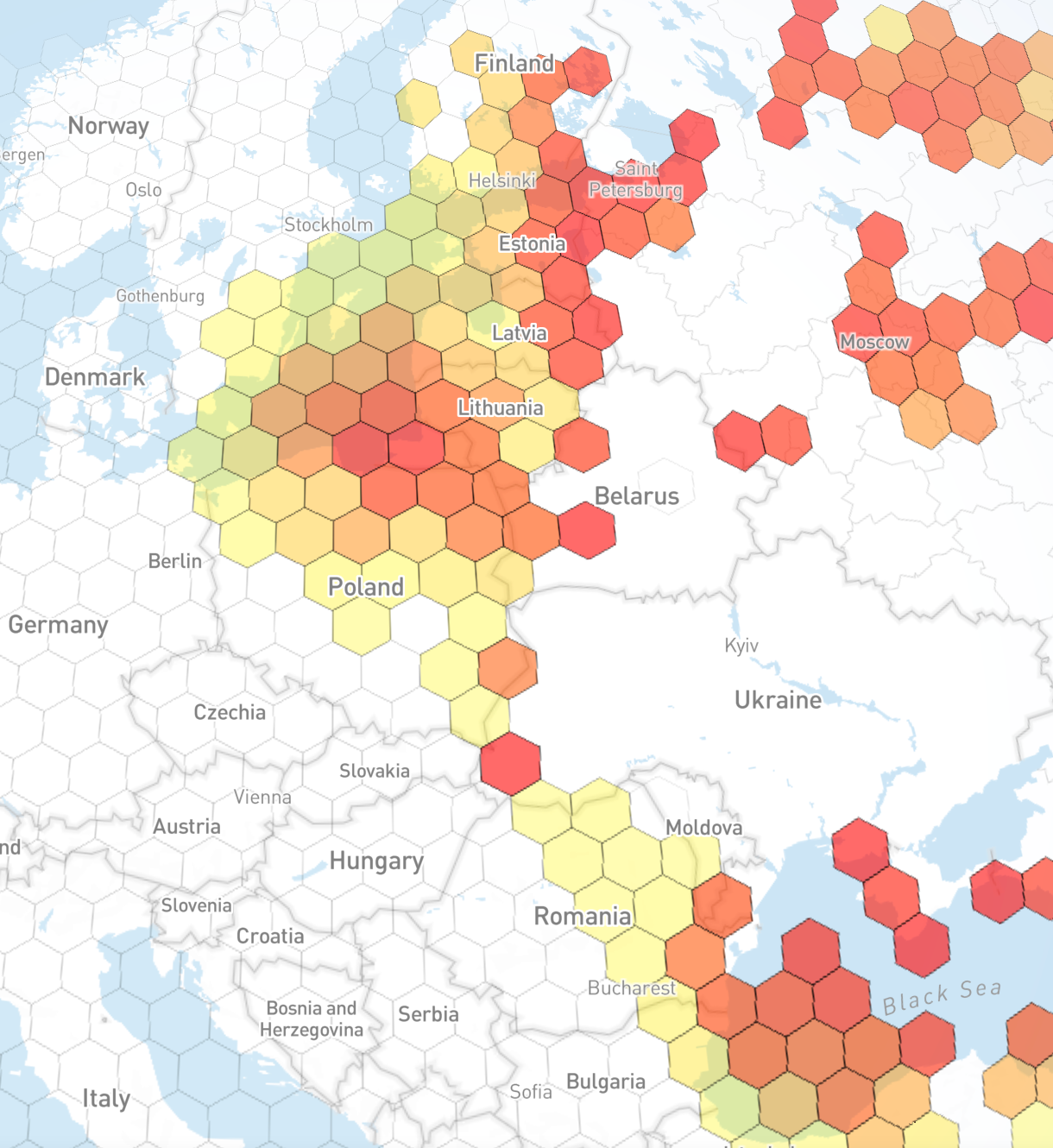
Some areas in the Caucasus were affected by GPS interference that day as well. The region, bordering Russia, witnessed one of the worst possible consequences of GPS jamming: the crash of Azerbaijan Airlines Embraer E190, registered as 4K-AZ65, on December 25, 2024.
The jet, which was shot at by Russian military forces as the aircraft was approaching Kadyrov Grozny International Airport (GRV), crashed in Kazakhstan, claiming the lives of 38 people. The preliminary report of the crash detailed that the flight crew had reported several instances of losing their GPS signals as they attempted to land at GRV.
GPSwise’s white paper about GPS jamming and spoofing estimated that over 310,000 flights were spoofed in 2024, noting that while “the number of affected flights has subsided since May 2024, the overall situation is far from improving, with hundreds of flights affected daily at the time of writing.”
The report detailed that there are five main safety concerns associated with GPS jamming and spoofing, including an aircraft deviating from its flight path, malfunctioning Enhanced Ground Proximity Warning Systems (EGPWS), post-interference navigational performance issues, loss of GPS approaches, and the loss of Controller-pilot datalink communications (CPDLC).
In a speech before the European Parliament (EP) in September 2025, Andrius Kubilius, the Commissioner for Defence and Space, warned Members of the EP (MEPs) that Europe is being tested, challenged, and under attack by military build-up on Europe’s borders and hybrid attacks.
While Kubilius did not specify the culprit – Russia – he did state that since Russia invaded Ukraine in February 2022, GPS “interference has gotten worse.” The Commissioner said that the situation has been especially grim on the European Union’s eastern flank, with the Baltic States having suffered a five-fold increase in flights affected by Radio Frequency interference in the past year.
“Today, 40% of European air traffic operates in regions strongly affected by radio frequency interference.”


